This article needs additional citations for verification .(January 2022) |
| 1820s .1830s in sociology. 1840s |
| Other topics: Western fashion |
The following events related to sociology occurred in the 1830s.
This article needs additional citations for verification .(January 2022) |
| 1820s .1830s in sociology. 1840s |
| Other topics: Western fashion |
The following events related to sociology occurred in the 1830s.
Events
Events
Deaths
Events
Events
Events

Thomas Robert Malthus was an English economist, cleric, and scholar influential in the fields of political economy and demography.

William Godwin was an English journalist, political philosopher and novelist. He is considered one of the first exponents of utilitarianism and the first modern proponent of anarchism. Godwin is most famous for two books that he published within the space of a year: An Enquiry Concerning Political Justice, an attack on political institutions, and Things as They Are; or, The Adventures of Caleb Williams, an early mystery novel which attacks aristocratic privilege. Based on the success of both, Godwin featured prominently in the radical circles of London in the 1790s. He wrote prolifically in the genres of novels, history and demography throughout his life.

Lambert Adolphe Jacques Quetelet FRSF or FRSE was a Belgian astronomer, mathematician, statistician and sociologist who founded and directed the Brussels Observatory and was influential in introducing statistical methods to the social sciences. His name is sometimes spelled with an accent as Quételet.

James Martineau was a British religious philosopher influential in the history of Unitarianism.
This article contains information about the literary events and publications of 1834.

Harriet Martineau was an English social theorist often seen as the first female sociologist. She wrote from a sociological, holistic, religious and feminine angle, translated works by Auguste Comte, and, rarely for a woman writer at the time, earned enough to support herself. The young Princess Victoria enjoyed her work and invited her to her 1838 coronation. Martineau advised "a focus on all [society's] aspects, including key political, religious, and social institutions". She applied thorough analysis to women's status under men. The novelist Margaret Oliphant called her "a born lecturer and politician... less distinctively affected by her sex than perhaps any other, male or female, of her generation."

The Royal Statistical Society (RSS) is an established statistical society. It has three main roles: a British learned society for statistics, a professional body for statisticians and a charity which promotes statistics for the public good.
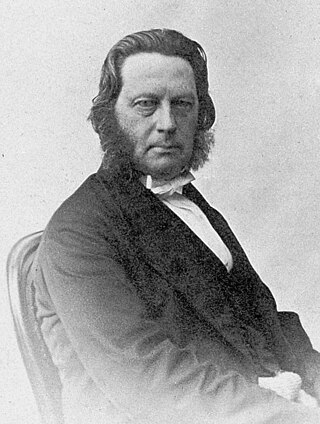
The Reverend William Darwin Fox was an English clergyman, naturalist, and a second cousin of Charles Darwin.

Malthusianism is the theory that population growth is potentially exponential, according to the Malthusian growth model, while the growth of the food supply or other resources is linear, which eventually reduces living standards to the point of triggering a population decline. This event, called a Malthusian catastrophe occurs when population growth outpaces agricultural production, causing famine or war, resulting in poverty and depopulation. Such a catastrophe inevitably has the effect of forcing the population to "correct" back to a lower, more easily sustainable level. Malthusianism has been linked to a variety of political and social movements, but almost always refers to advocates of population control.
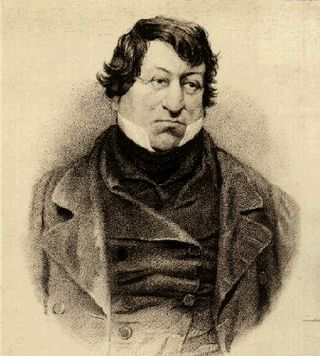
Richard Jones was an English economist who criticised the theoretical views of David Ricardo and T. R. Malthus on economic rent and population.
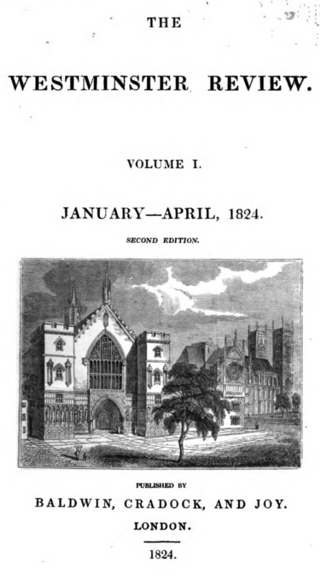
The Westminster Review was a quarterly British publication. Established in 1823 as the official organ of the Philosophical Radicals, it was published from 1824 to 1914. James Mill was one of the driving forces behind the liberal journal until 1828.
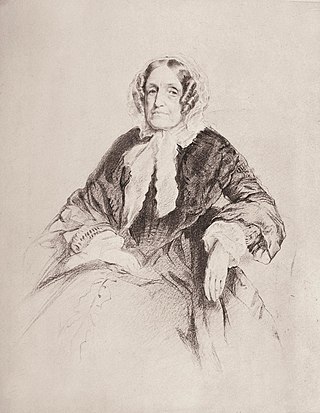
Jane Marcet was an English salonnière of Swiss origin, and an innovative writer of popular, explanatory science books. She also broke ground with Conversations on Political Economy (1816), which explain the ideas of Adam Smith, Malthus and David Ricardo.

The book An Essay on the Principle of Population was first published anonymously in 1798, but the author was soon identified as Thomas Robert Malthus. The book warned of future difficulties, on an interpretation of the population increasing in geometric progression while food production increased in an arithmetic progression, which would leave a difference resulting in the want of food and famine, unless birth rates decreased.

The Royal Observatory of Belgium, has been situated in the Uccle municipality of Brussels, Belgium, since 1890. It was first established in Saint-Josse-ten-Noode in 1826 by King William I of the Netherlands under the impulse of Adolphe Quetelet. It was home to a 100 cm (39 in) diameter aperture Zeiss reflector in the first half of the 20th century, one of the largest telescopes in the world at the time. It now owns a variety of other astronomical instruments, such as astrographs, as well as a range of seismograph equipment.

The Martineau family is an intellectual, business and political dynasty associated first with Norwich and later also London and Birmingham, England. Many members of the family have been knighted. Many family members were prominent Unitarians; a room in London's Essex Hall, the headquarters building of the British Unitarians, was named after them. Martineau Place in Birmingham's central business district was named in their honour.
Abbé Aloïsius Édouard Camille Gaultier was a French Roman Catholic priest and educational reformer. In 1792 he left France during the worst of the Revolution, passing via Holland to England where he set up a school for the children of other refugees.
Events in the year 1853 in Belgium.
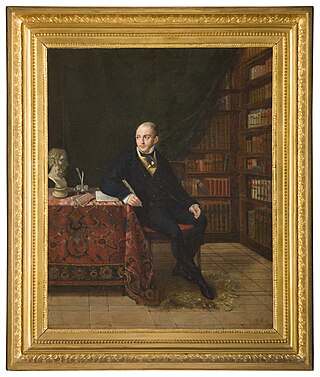
The Société des douze was a scholarly and literary dining club in Brussels.
The Royal Netherlands Academy of Arts and Sciences is an organization dedicated to the advancement of science and literature in the Netherlands. The academy is housed in the Trippenhuis in Amsterdam. Founded in 1808, members are appointed for life by co-optation.